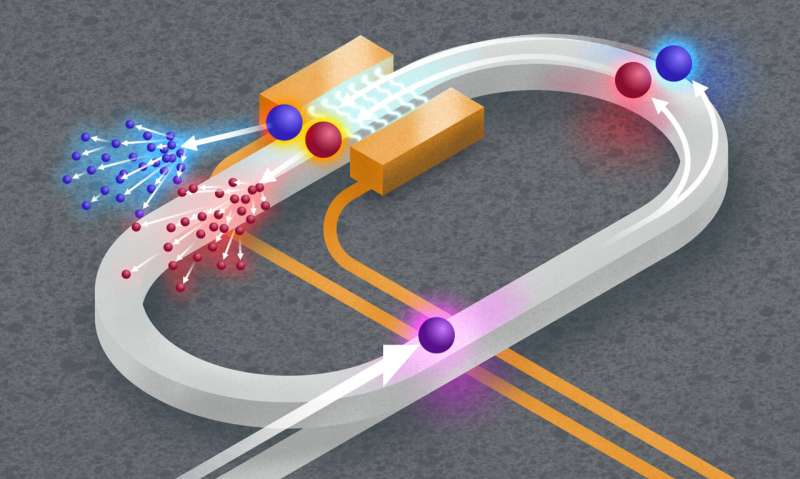This article has been reviewed according to Science X's editorial process and policies. Editors have highlighted the following attributes while ensuring the content's credibility:
fact-checked
peer-reviewed publication
trusted source
proofread
Scientists edge toward scalable quantum simulations on a photonic chip

Scientists have made an important step toward developing computers advanced enough to simulate complex natural phenomena at the quantum level. While these types of simulations are too cumbersome or outright impossible for classical computers to handle, photonics-based quantum computing systems could provide a solution.
A team of researchers from the University of Rochester's Hajim School of Engineering & Applied Sciences developed a new chip-scale optical quantum simulation system that could help make such a system feasible. The team, led by Qiang Lin, a professor of electrical and computer engineering and optics, published their findings in Nature Photonics.
Lin's team ran the simulations in a synthetic space that mimics the physical world by controlling the frequency, or color, of quantum entangled photons as time elapses. This approach differs from the traditional photonics-based computing methods in which the paths of photons are controlled, and also drastically reduces the physical footprint and resource requirements.
"For the first time, we have been able to produce a quantum-correlated synthetic crystal," says Lin. "Our approach significantly extends the dimensions of the synthetic space, enabling us to perform simulations of several quantum-scale phenomena such as random walks of quantum entangled photons."
The researchers say that this system can serve as a basis for more intricate simulations in the future.
"Though the systems being simulated are well understood, this proof-of-principle experiment demonstrates the power of this new approach for scaling up to more complex simulations and computation tasks, something we are very excited to investigate in the future," says Usman Javid '23 Ph.D., the lead author on the study.
Other co-authors from Lin's group include Raymond Lopez-Rios, Jingwei Ling, Austin Graf, and Jeremy Staffa.
More information: Usman A. Javid et al, Chip-scale simulations in a quantum-correlated synthetic space, Nature Photonics (2023). DOI: 10.1038/s41566-023-01236-7
Journal information: Nature Photonics
Provided by University of Rochester



















